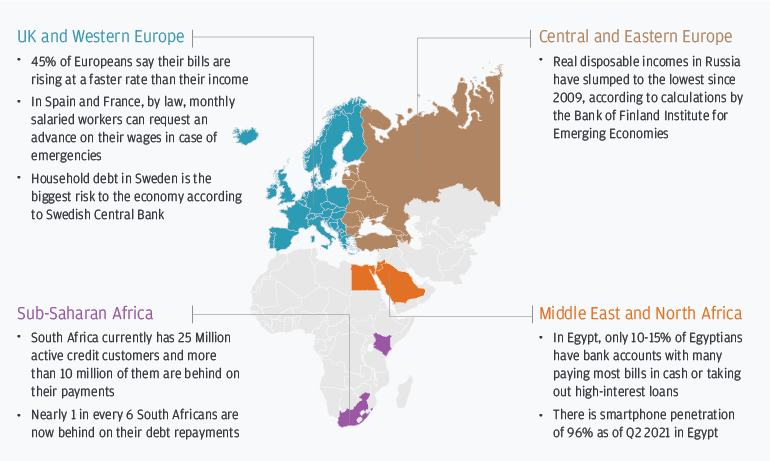
In today’s world, the consumption of goods and services is fundamentally mismatched with how people are paid their income.
A real-time, on-demand, connected commerce ecosystem has emerged across multiple industries, while many consumers are still compensated in deferred, fixed-payroll cycles. For segments of the population that do not have substantial savings, this is leading to intra-month cash flow challenges at a time when the cost of living is rising faster than real wages.
Unlocking sustainable financial solutions
With an increase in social consciousness of employers globally, we are now seeing a transition to more ethics-based corporate strategies, business models and embedded payment features.
One particular area in alternative finance that has grown in relevance is earned wage access (EWA) or on-demand pay, as it is commonly known in North America. This has become a mainstream tool for employees in the U.S., in particular, due to the wage culture and employer-led benefits; but this trend is starting to proliferate across Europe, the Middle East and Africa (EMEA).
Trends
Cash is king has been the guiding principle for many traditional companies over the years. In the current economic environment, cash flow is now king and one of the emerging trends driving growth in the earned wage access market. Other key trends, covered in our report, include the momentum in alternative finance, solving for the point of need, gamification of services and notably EWA as a talent retention and attraction tool.
EWA is now being adopted by workers across multiple regions and segments that are seeking an alternative to pay-day lending, with use cases emerging across various industries including fast-moving consumer goods, hospitality, logistics, construction and transport.
Earned wage access is a win-win for employees and employers. For employers it offers a competitive benefit to help retain employees amid a tight labor market, while employees receive access to a flexible and sustainable tool to managing their finances.
Yousif Mohammed
Head of Trends & Advisory EMEA and Global ESG Lead, J.P. Morgan Payments
Regional drivers in EMEA

EWA might be utilized as a necessity by some, while providing optionality for others; but what our report finds consistently across the board is that payments can serve as a key source of social value to not only the individuals, but the wider communities they support when embedded within the broader ecosystem.
Explore more ESG insights from J.P. Morgan Payments' experts
Stay informed and stay ahead with our monthly newsletter
Receive key updates and news with relevant actionable insights and best practices — including the latest intelligence on payments trends, digital innovation, regulatory change, ESG and sustainable financing and much more.
Subscribe to THE MONTH IN…Treasury & Payments
The views and opinions expressed herein are those of the author and do not necessarily reflect the views of J.P. Morgan, its affiliates, or its employees. The information set forth herein has been obtained or derived from sources believed to be reliable. Neither the author nor J.P. Morgan makes any representations or warranties as to the information’s accuracy or completeness. The information contained herein has been provided solely for informational purposes and does not constitute an offer, solicitation, advice or recommendation, to make any investment decisions or purchase any financial instruments, and may not be construed as such.
JPMorgan Chase Bank, N.A. Member FDIC.
JPMorgan Chase Bank, N.A., organized under the laws of U.S.A. with limited liability.







